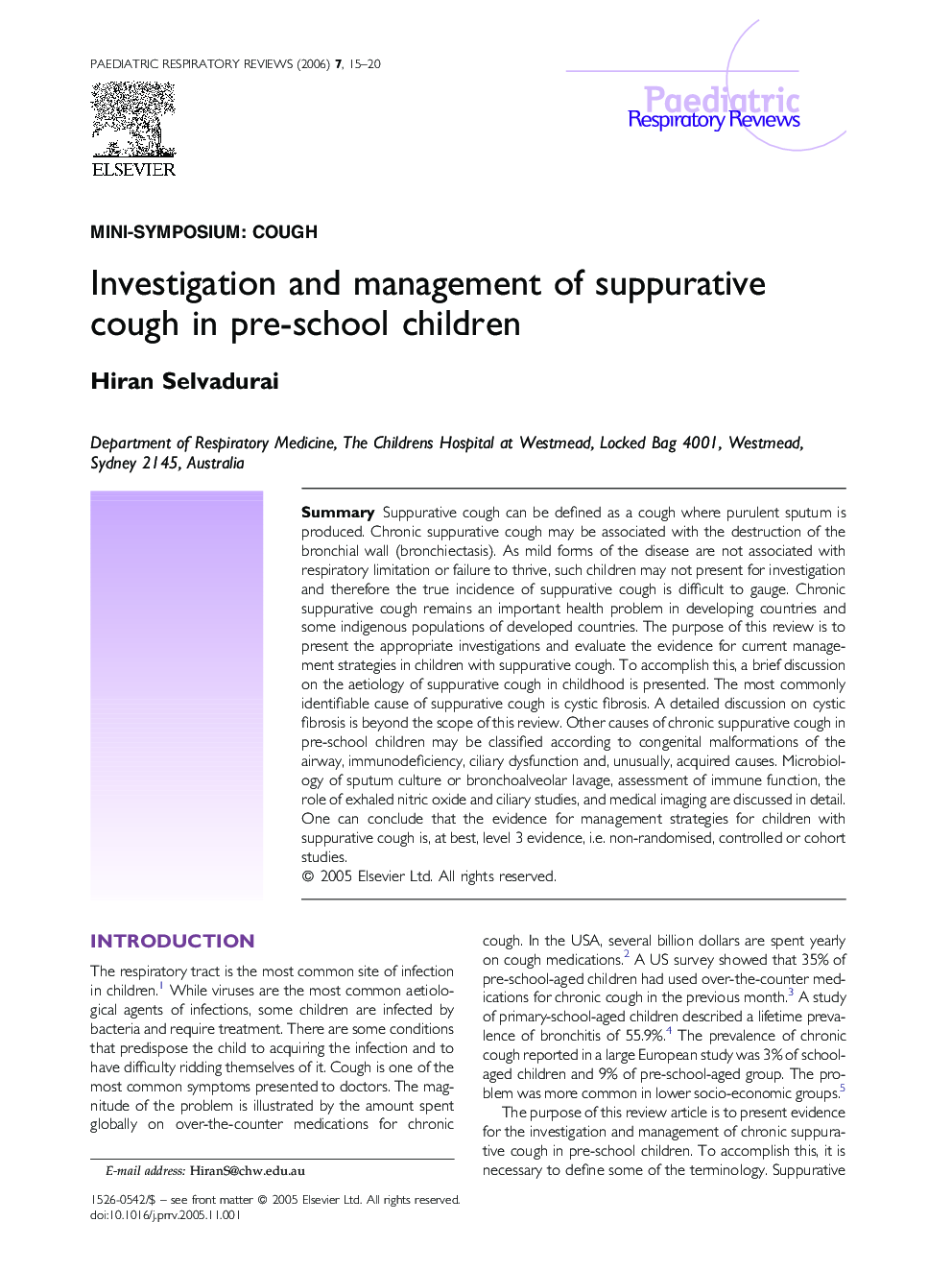| Article ID | Journal | Published Year | Pages | File Type |
|---|---|---|---|---|
| 4171730 | Paediatric Respiratory Reviews | 2006 | 6 Pages |
SummarySuppurative cough can be defined as a cough where purulent sputum is produced. Chronic suppurative cough may be associated with the destruction of the bronchial wall (bronchiectasis). As mild forms of the disease are not associated with respiratory limitation or failure to thrive, such children may not present for investigation and therefore the true incidence of suppurative cough is difficult to gauge. Chronic suppurative cough remains an important health problem in developing countries and some indigenous populations of developed countries. The purpose of this review is to present the appropriate investigations and evaluate the evidence for current management strategies in children with suppurative cough. To accomplish this, a brief discussion on the aetiology of suppurative cough in childhood is presented. The most commonly identifiable cause of suppurative cough is cystic fibrosis. A detailed discussion on cystic fibrosis is beyond the scope of this review. Other causes of chronic suppurative cough in pre-school children may be classified according to congenital malformations of the airway, immunodeficiency, ciliary dysfunction and, unusually, acquired causes. Microbiology of sputum culture or bronchoalveolar lavage, assessment of immune function, the role of exhaled nitric oxide and ciliary studies, and medical imaging are discussed in detail. One can conclude that the evidence for management strategies for children with suppurative cough is, at best, level 3 evidence, i.e. non-randomised, controlled or cohort studies.
